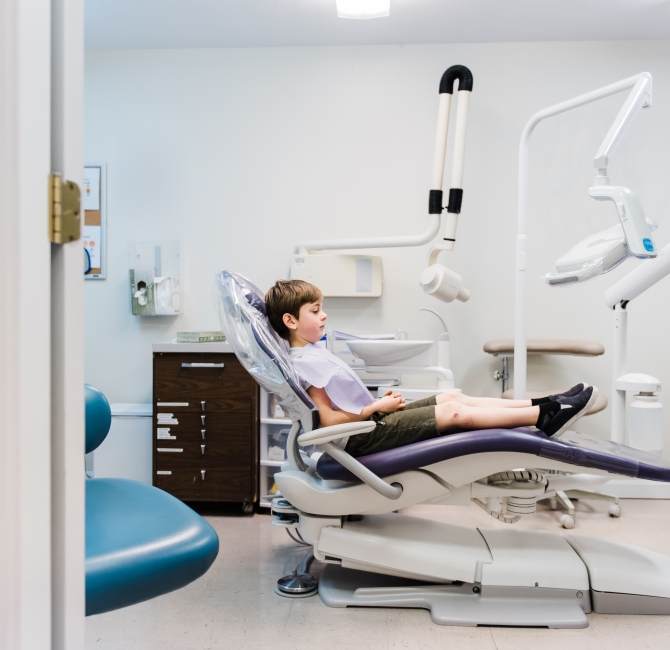Key messages
- Traumatic experiences can impact clients’ oral health and ability to receive oral care, emphasizing the importance for dental hygienists being knowledgeable and prepared to provide trauma-informed care.
- Understanding trauma histories and offering trauma-informed care can support clients to achieve and maintain good oral health.
- Dental hygienists are uniquely positioned to provide effective trauma-informed care, as they typically spend the most time with clients.
Introduction
Traumatic experiences can impact individuals’ oral health and how they experience oral healthcare. Many children and adults have experienced some form of trauma, making it crucial for dental hygienists to be aware of clients’ trauma histories and provide trauma-informed care as required.
Clients with a trauma history may experience significant anxiety and distress in the oral healthcare setting, even for noninvasive care (e.g., brief intraoral examinations and radiographs). Oral care may trigger memories and emotions related to the original trauma, which may retraumatize clients. This article introduces links between traumatic history, poor oral health, and dental fear and anxiety. The article also describes how dental hygienists can provide trauma-informed care to their clients to incorporate whole-person care that considers clients’ comfort, health goals, and prior experiences.
Adverse childhood experiences
Many children and adults have experienced at least one adverse childhood experience (ACE), with some experiencing three or more ACEs. ACEs are traumatic events and include physical, sexual, and verbal abuse, physical and emotional neglect, household dysfunction (e.g., intimate partner violence), bullying, and parental separation.
ACEs are associated with negative socioeconomic impacts, poor health, and health risk behaviours, including unemployment, cardiovascular disease, depression, and tobacco, alcohol, and substance use.
Some people with a trauma history develop post-traumatic stress disorder (PTSD), a response to witnessing or experiencing a traumatic event. These responses can include dissociative reactions or recurrent and intrusive memories, dreams, and flashbacks in which the individual re-experiences the event.
Oral health
Traumatic experiences can impact oral health. Children and adolescents with a trauma history are more likely to have dental caries, gingival bleeding, and self-reported fair to poor oral health. Adults with a trauma background often receive infrequent professional scaling and attend fewer oral health appointments. Frequently cancelling, rescheduling, or missing appointments may indicate a traumatic stress reaction. Trauma history is also associated with increased dental anxiety and fear, with sexual abuse significantly increasing the risk of dental anxiety.
Aspects of oral care that may trigger traumatic memories and emotions and retraumatize clients include:
- Reclining the client in the treatment chair
- Placing the dental bib around their neck
- Hovering over clients while providing treatment
- Impeding the client’s ability to speak or communicate effectively while providing care
Trauma-informed care
Trauma-informed care is clinical care that considers clients’ trauma histories, recognizes the prevalence and impact of trauma on clients, and emphasizes supportive and compassionate oral care to avoid retraumatizing clients. Failing to provide trauma-informed care risks invalidating client experiences, negatively impacting client rapport, and inadvertently retraumatizing clients.
Trauma-informed care recognizes how past trauma interferes with the ability to receive oral care and then tailoring care to avoid retraumatization. Clients should be active participants in deciding what works best for them. Client interviewing should occur with the dental hygienist facing the client with the client’s chair slightly elevated to give the client a sense of control and reduce the power differential. Asking questions in a nonconfrontational and nonjudgmental manner encourages better communication and helps establish trust between the clinician and the client. Clients who trust their clinicians are more likely to engage with their care, follow through with recommended treatment, and better control their chronic conditions, leading to better health outcomes.
Conclusions
Trauma experience can significantly impact individuals’ oral health and perceptions of oral healthcare. Essential components of trauma-informed care include active, nonjudgmental listening, awareness of potential trauma history signs, creating a physically and psychologically safe space, and tailoring treatment to accommodate clients’ fears and anxieties. Understanding trauma backgrounds and offering appropriate trauma-informed care can support clients in achieving and maintaining good oral health.



